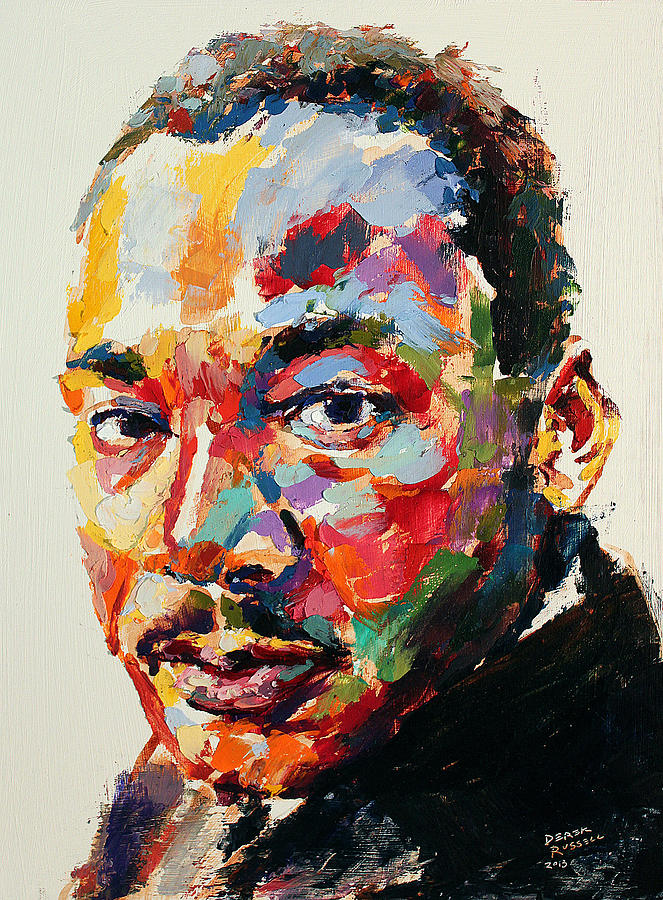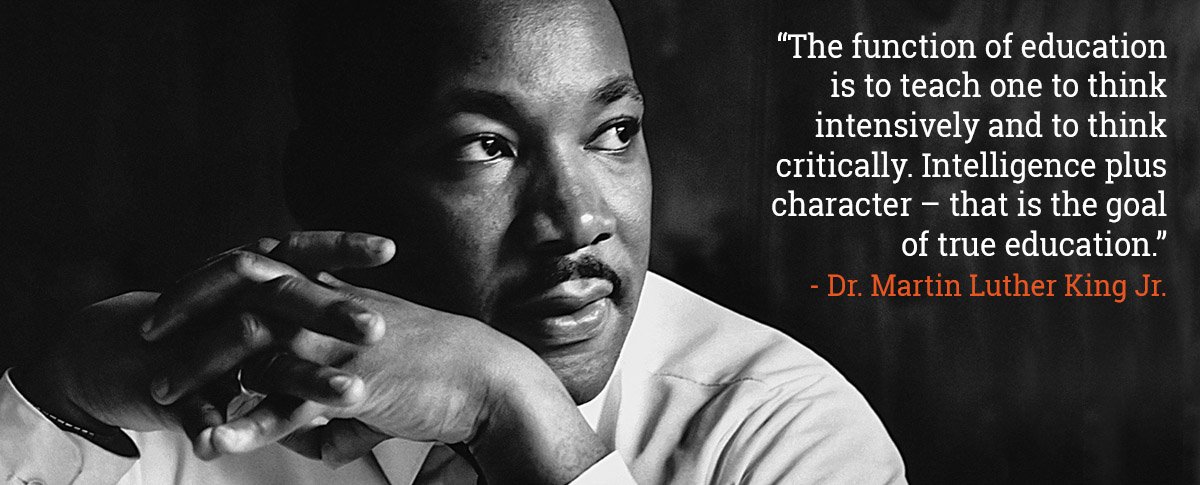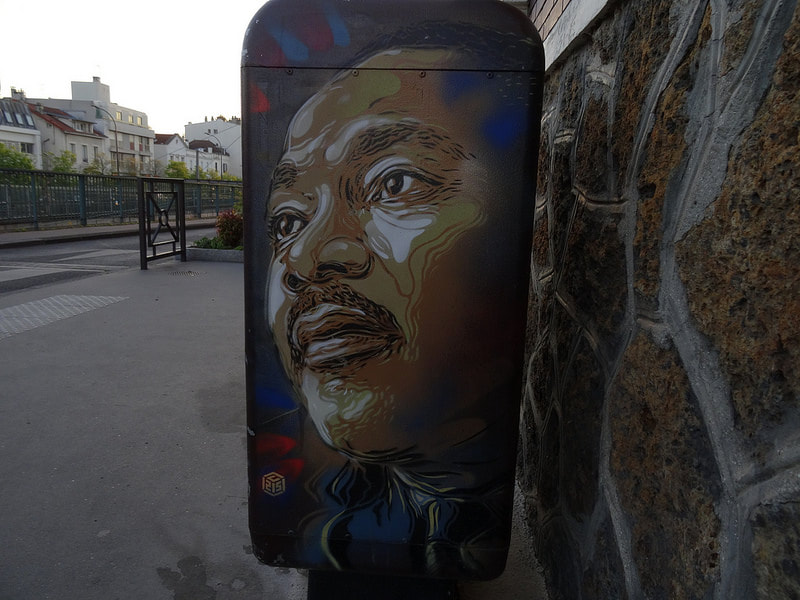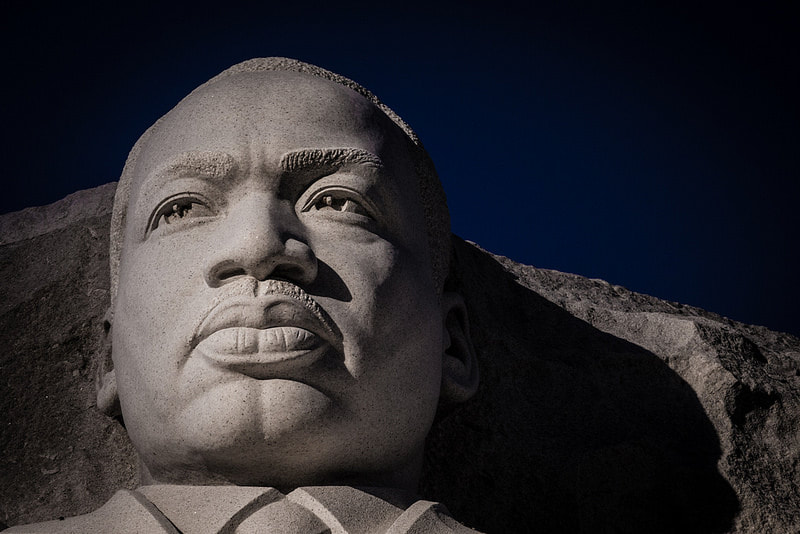When people open up to share reflective questions and observations from their deep past it is always good to shut up and listen. These are times to simply be there for those who have very personal things to share. Not to comment, interpose personal observations of self, or say something stupid which would close down this time of intimacy between soul to soul. Just listen. And having listened to reflect with the one sharing where they may wish to go with the information they just shared with you. It is a time for deep wisdom and for asking the Spirit of the Lord to guide minds and hearts what's next. Where to go. How to go. To be. Perhaps, just to be. - re slater
------
Oftentimes when I here conversations like the one above I remember my own feelings and judgments of my past - many good, some not so good. Hell was one of those topics I didn't understand but deeply felt about and feared to share in.
Especially of a God I didn't understand. Of a God who said He loved me but then said I was condemned to hell if I didn't live up to His standards. Most of it I think I got right - in a twisted sort of way - but a lot of it I didn't understand. Especially this fear thing which was undeniable to the truth of hell. That sin and evil resided in its bowels and it was a place I did not wish either to reside or to reproduce through my life.
Many decades hence I have come to a re-visioning place in my life which has greatly helped my youth's fears and admonitions with the God who says He loves me but may condemn me. It required relearning the right things about God and removing the wrong things I had learned about Him or through my own bible readings.
Especially of a God I didn't understand. Of a God who said He loved me but then said I was condemned to hell if I didn't live up to His standards. Most of it I think I got right - in a twisted sort of way - but a lot of it I didn't understand. Especially this fear thing which was undeniable to the truth of hell. That sin and evil resided in its bowels and it was a place I did not wish either to reside or to reproduce through my life.
Many decades hence I have come to a re-visioning place in my life which has greatly helped my youth's fears and admonitions with the God who says He loves me but may condemn me. It required relearning the right things about God and removing the wrong things I had learned about Him or through my own bible readings.
Here's what I learned...
And it are things like this I could wish to share with others...
And it are things like this I could wish to share with others...
Firstly, under
an open and relational theology the old concept of God condemning the planet
and casting everyone into a fiery hell is abandoned.
Under this theology the planet and
humanity's future is seen as a joined partnership with one another responsible for creating
i) loving communion with each other;
ii) for fellowships of nurturing and thriving for the common good to the fore; and,
iii) for dissenting and resisting economies and theologies of profiteering to the harm of both earth and man.
It
is not a loving God who has given to us the "fiery" or "terrible" gift of freewill who determines our outcome - but we, ourselves, and how we determine not only our
own future but how we influence and affect the futures of all our fellow men and women - including this planet - by the use of our freewill.
The fiery hell of older theologies are
now the hells we maintain within ourselves and persist by our actions upon this earth by choices for evil over
good; for sin over loving actions; for selfishness and greed over sharing,
respect, and thoughtfulness to one another and our planet.
And if, in the end, the world comes to its Armageddon or we, to our own, then it results not because of God's condemnation upon us but because we have lived lives of damnation refusing to allow or accept God's forever love into our lives to create actions and fellowships for good, for love, for hope.
Hell comes as much now, in this life, as it portends later in some life-after-death schemata which many like to think as true. And if you ask me, personally, of ultimate ends, I will say I cannot envision a forever hell as many think of it as.
And if, in the end, the world comes to its Armageddon or we, to our own, then it results not because of God's condemnation upon us but because we have lived lives of damnation refusing to allow or accept God's forever love into our lives to create actions and fellowships for good, for love, for hope.
Hell comes as much now, in this life, as it portends later in some life-after-death schemata which many like to think as true. And if you ask me, personally, of ultimate ends, I will say I cannot envision a forever hell as many think of it as.
For me, I see hell's reality or "state of condition" as much at the beginning of life - and persisting through every life in every kind of form - across the backdrop of the constancy of God's loving communion everyday present
with His creation.
And at death, rather than being cast into a fiery hell, there will be those who join the ranks of one's who had enjoined hell in some everyday form of their lives in refusing (e.g., this freewill thing again) God's loving guidance and presence in every helpful situation they had faced and been asked to stop, fix, reform, aide, or help.
More so, in the end, it is not God's love which casts us into hell, but
our refusal of God's love offered through Jesus who came as sacrifice, savior,
and everyday guide we call the Holy Spirit.
That in the end, hell is not a place, but a condition better described as a state of annihilation, which is present with us from birth to death. And if there is an afterlife, as the bible teaches, then it is in this state of annihilation to which our souls finally die into a state of non-existence where torments cease from God's loving call to come, be healed, and there find wholeness.
That in the end, hell is not a place, but a condition better described as a state of annihilation, which is present with us from birth to death. And if there is an afterlife, as the bible teaches, then it is in this state of annihilation to which our souls finally die into a state of non-existence where torments cease from God's loving call to come, be healed, and there find wholeness.
It is this form of hell better described as annihilation which find us thrown about across erratic (or chaotic) states
of spiritual death from God, from self, from others, and from creation. That is in this state of hell/annihilation which separates us from God, self, others, and creation.
We live with different kinds of deaths everyday in our lives unless we allow God's love to stop and rectify these daily deaths that are there calling us away from His love and community.
We live with different kinds of deaths everyday in our lives unless we allow God's love to stop and rectify these daily deaths that are there calling us away from His love and community.
At the last, these interim states of deaths (or conditions of annihilation) finalize/coalesce at our death unless we actively choose to accept God's love and
presence in our lives each and into everyone of those days we chose live as lives bourne across personal seas of death, chaos, and ruin.
For myself, as for many others, we can live life comforted by the fact that God has never abandoned us nor condemned us to hell but that He is present in our lives now, everyday, guiding, loving, caring. Not condemning, harming, or judging! This God I was taught was just the opposite of everything He really is... that His force of life had gotten turned around into something awful rather than being something really good. Really helpful. Really life changing.
And it is also why I and others say that rather than damning, God's holy
presence sanctifies, redeems, reclaims, restores, and renews His creation everyday to be holy
vessels bearing His divine love into a worlds of sin and destruction. Worlds of self-annihilating ruin and separation.
Though the
older theologies had the sentiments right they had spoken it wrong.
It is not the God of the bible who condemns us but He who saves us.
The condemnation comes from within us unless we understand God alright as a loving presence seeking always our good in a world gone mad.
A God whose salvation through Jesus a'rights those chaotic seas of hell, calms the storms, and allows us to walk across the dark, troubling of waters of life unto renewal and reclamation of fellowship with Creator, ourselves, others, and creation, forever and always.
It is not the God of the bible who condemns us but He who saves us.
The condemnation comes from within us unless we understand God alright as a loving presence seeking always our good in a world gone mad.
A God whose salvation through Jesus a'rights those chaotic seas of hell, calms the storms, and allows us to walk across the dark, troubling of waters of life unto renewal and reclamation of fellowship with Creator, ourselves, others, and creation, forever and always.
R.E. Slater
January 23, 2010
* * * * * * * * * *


As an aside to the above discussion, let's read Isaiah 66's chapter and try reading it in the light just described above - in the light of a theology teaching the goodness and constancy of God's love over older theologies using God's love and light as threat, dictum, and judgment of hell into our lives.
As evidence, the
Israelites also commonly understood God as judge which is why the old theologies
have held on so long. Yet looked another way, these scripture passages are describing the judgment
of God as the sentence men have passed upon themselves in persisting in not
loving one another while holding to the belief that their religious activities
protected them from evil.
Those self-same religious activities but condemned hearts already committed to evil. Unrepented hearts hiding under covers
of religiosity and churchliness. Covers that hated others, loved self over
others, ruined the earth as caretake for flourishing, and refusing God any entry into lives of perfidy.
As such, they brought
judgment upon their own heads which the bible describes as judgment from God. Yet used in another way, it is the judgment of God and of our ourselves in our observations, that should we, or any, persist in unloving ways, those ways will overcome us under their own condemnations. Condemnations which assure choosing darkness over light is surely the way to death by a thousand deaths heaped upon by a thousand more.
R.E. Slater
January 23, 2010
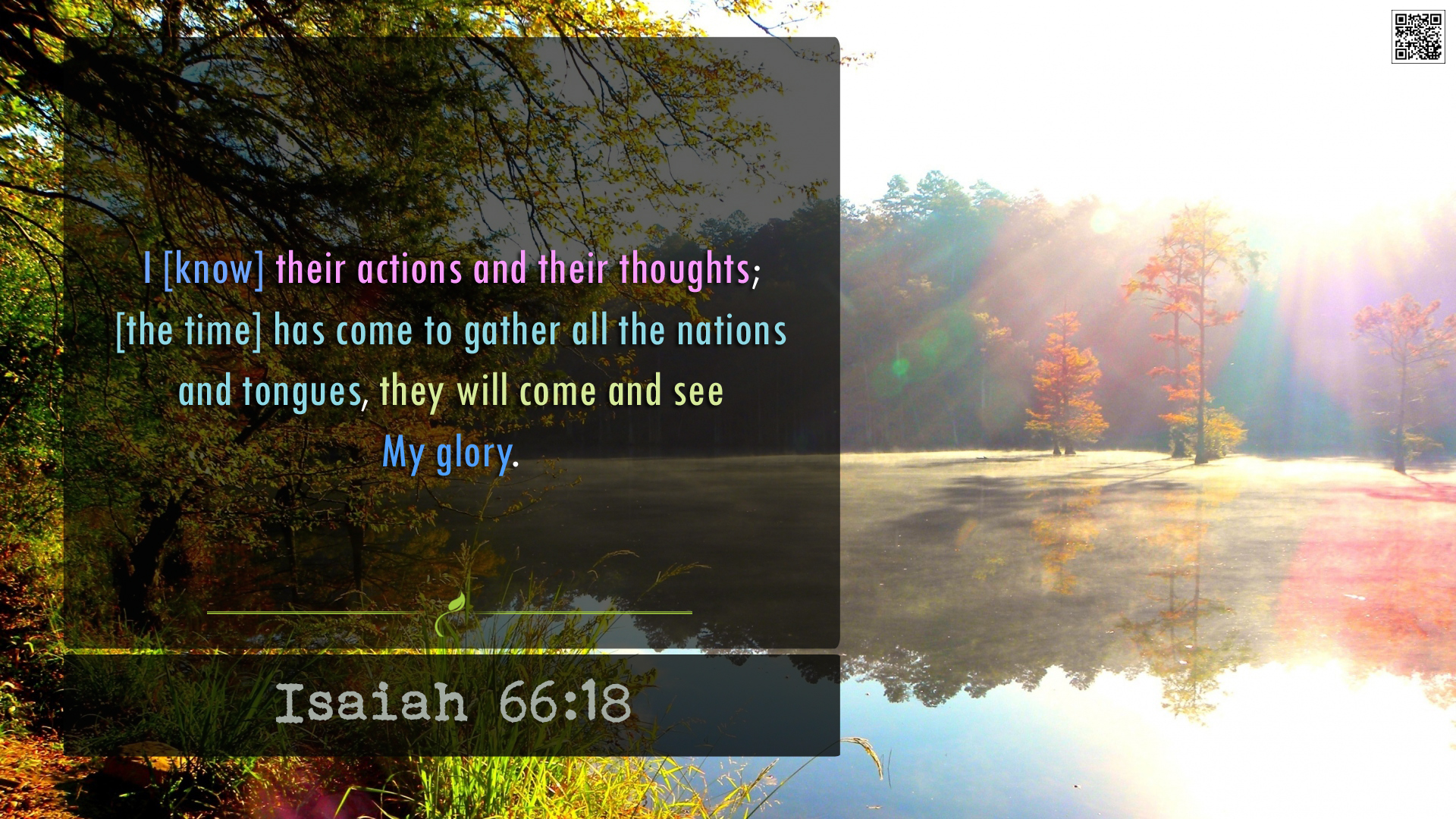
Isaiah 66 New American Standard Bible (NASB)
Heaven Is God’s Throne
66 Thus says the Lord,
“Heaven is My throne and the earth is My footstool.
Where then is a house you could build for Me?
And where is a place that [a]I may rest?
2 “For My hand made all these things,
Thus all these things came into being,” declares the Lord.
“But to this one I will look,
To him who is humble and contrite of spirit, and who trembles at My word.
Where then is a house you could build for Me?
And where is a place that [a]I may rest?
2 “For My hand made all these things,
Thus all these things came into being,” declares the Lord.
“But to this one I will look,
To him who is humble and contrite of spirit, and who trembles at My word.
Hypocrisy Rebuked
3 “But he who kills an ox is like one who slays a man;
He who sacrifices a lamb is like the one who breaks a dog’s neck;
He who offers a grain offering is like one who offers swine’s blood;
He who [b]burns incense is like the one who blesses an idol.
As they have chosen their own ways,
And their soul delights in their abominations,
4 So I will choose their [c]punishments
And will bring on them what they dread.
Because I called, but no one answered;
I spoke, but they did not listen.
And they did evil in My sight
And chose that in which I did not delight.”
5 Hear the word of the Lord, you who tremble at His word:
“Your brothers who hate you, who exclude you for My name’s sake,
Have said, ‘Let the Lord be glorified, that we may see your joy.’
But they will be put to shame.
6 “A voice of uproar from the city, a voice from the temple,
The voice of the Lord who is rendering recompense to His enemies.
He who sacrifices a lamb is like the one who breaks a dog’s neck;
He who offers a grain offering is like one who offers swine’s blood;
He who [b]burns incense is like the one who blesses an idol.
As they have chosen their own ways,
And their soul delights in their abominations,
4 So I will choose their [c]punishments
And will bring on them what they dread.
Because I called, but no one answered;
I spoke, but they did not listen.
And they did evil in My sight
And chose that in which I did not delight.”
5 Hear the word of the Lord, you who tremble at His word:
“Your brothers who hate you, who exclude you for My name’s sake,
Have said, ‘Let the Lord be glorified, that we may see your joy.’
But they will be put to shame.
6 “A voice of uproar from the city, a voice from the temple,
The voice of the Lord who is rendering recompense to His enemies.
7 “Before she travailed, she brought forth;
Before her pain came, she gave birth to a boy.
8 “Who has heard such a thing? Who has seen such things?
Can a land be [d]born in one day?
Can a nation be brought forth all at once?
As soon as Zion travailed, she also brought forth her sons.
9 “Shall I bring to the point of birth and not give delivery?” says the Lord.
“Or shall I who gives delivery shut the womb?” says your God.
Before her pain came, she gave birth to a boy.
8 “Who has heard such a thing? Who has seen such things?
Can a land be [d]born in one day?
Can a nation be brought forth all at once?
As soon as Zion travailed, she also brought forth her sons.
9 “Shall I bring to the point of birth and not give delivery?” says the Lord.
“Or shall I who gives delivery shut the womb?” says your God.
Joy in Jerusalem’s Future
10 “Be joyful with Jerusalem and rejoice for her, all you who love her;
Be exceedingly glad with her, all you who mourn over her,
11 That you may nurse and be satisfied with her comforting breasts,
That you may suck and be delighted with her bountiful bosom.”
12 For thus says the Lord, “Behold, I extend peace to her like a river,
And the glory of the nations like an overflowing stream;
And you will [e]be nursed, you will be carried on the [f]hip and fondled on the knees.
13 “As one whom his mother comforts, so I will comfort you;
And you will be comforted in Jerusalem.”
14 Then you will see this, and your heart will be glad,
And your bones will flourish like the new grass;
And the hand of the Lord will be made known to His servants,
But He will be indignant toward His enemies.
15 For behold, the Lord will come in fire
And His chariots like the whirlwind,
To render His anger with fury,
And His rebuke with flames of fire.
16 For the Lord will execute judgment by fire
And by His sword on all flesh,
And those slain by the Lord will be many.
17 “Those who sanctify and purify themselves to go to the gardens,
[g]Following one in the center,
Who eat swine’s flesh, detestable things and mice,
Will come to an end altogether,” declares the Lord.
Be exceedingly glad with her, all you who mourn over her,
11 That you may nurse and be satisfied with her comforting breasts,
That you may suck and be delighted with her bountiful bosom.”
12 For thus says the Lord, “Behold, I extend peace to her like a river,
And the glory of the nations like an overflowing stream;
And you will [e]be nursed, you will be carried on the [f]hip and fondled on the knees.
13 “As one whom his mother comforts, so I will comfort you;
And you will be comforted in Jerusalem.”
14 Then you will see this, and your heart will be glad,
And your bones will flourish like the new grass;
And the hand of the Lord will be made known to His servants,
But He will be indignant toward His enemies.
15 For behold, the Lord will come in fire
And His chariots like the whirlwind,
To render His anger with fury,
And His rebuke with flames of fire.
16 For the Lord will execute judgment by fire
And by His sword on all flesh,
And those slain by the Lord will be many.
17 “Those who sanctify and purify themselves to go to the gardens,
[g]Following one in the center,
Who eat swine’s flesh, detestable things and mice,
Will come to an end altogether,” declares the Lord.
18 “For I [h]know their works and their thoughts; [i]the time is coming to gather all nations and tongues. And they shall come and see My glory. 19 I will set a sign among them and will send survivors from them to the nations: Tarshish, [j]Put, Lud, [k]Meshech, Tubal and [l]Javan, to the distant coastlands that have neither heard My fame nor seen My glory. And they will declare My glory among the nations. 20 Then they shall bring all your brethren from all the nations as a grain offering to the Lord, on horses, in chariots, in litters, on mules and on camels, to My holy mountain Jerusalem,” says the Lord, “just as the sons of Israel bring their grain offering in a clean vessel to the house of the Lord. 21 I will also take some of them for priests and for Levites,” says the Lord.
22 “For just as the new heavens and the new earth
Which I make will endure before Me,” declares the Lord,
“So your offspring and your name will endure.
23 “And it shall be from new moon to new moon
And from sabbath to sabbath,
All [m]mankind will come to bow down before Me,” says the Lord.
24 “Then they will go forth and look
On the corpses of the men
Who have [n]transgressed against Me.
For their worm will not die
And their fire will not be quenched;
And they will be an abhorrence to all [o]mankind.”
Which I make will endure before Me,” declares the Lord,
“So your offspring and your name will endure.
23 “And it shall be from new moon to new moon
And from sabbath to sabbath,
All [m]mankind will come to bow down before Me,” says the Lord.
24 “Then they will go forth and look
On the corpses of the men
Who have [n]transgressed against Me.
For their worm will not die
And their fire will not be quenched;
And they will be an abhorrence to all [o]mankind.”
Footnotes:
- Isaiah 66:1 Lit is My resting place?
- Isaiah 66:3 Lit offers a memorial of incense
- Isaiah 66:4 Lit ill treatments
- Isaiah 66:8 Lit travailed with
- Isaiah 66:12 Lit nurse
- Isaiah 66:12 Lit side
- Isaiah 66:17 Lit After
- Isaiah 66:18 So with Gr; Heb omits know
- Isaiah 66:18 Lit it is coming
- Isaiah 66:19 So with Gr; Heb Pul
- Isaiah 66:19 So with Gr; Heb those who draw the bow
- Isaiah 66:19 I.e. Greece
- Isaiah 66:23 Lit flesh
- Isaiah 66:24 Or rebelled
- Isaiah 66:24 Lit flesh
* * * * * * * * * *
Aaron Rodgers Opens Up About Religion to Danica Patrick: ‘I Don’t Know How You Can Believe in a God’
The Green Bay Packers quarterback sat down for an interview with girlfriend Danica Patrick
In an intimate conversation with girlfriend Danica Patrick, Green Bay Packers quarterback Aaron Rodgers is discussing his Christian upbringing and how he first began to question his faith.
In a video posted to Patrick’s YouTube page for her Pretty Intense podcast in late December, Rodgers — who was raised as a Christian from a young age — said he had trouble connecting with his religious community as a child.
“Most people that I knew, church was just … you just had to go,” the Super Bowl XLV champion recalled.
It was his time with the youth group, Young Life, that he felt the most sense of community — which he said he didn’t experience during typical Sunday mass.
“We went to Mexico during two spring breaks and built houses,” he said of volunteering with the program. “We put together homes for these folks who were living [with] garage door sides thrown together and stuff, that was meaningful. That was really meaningful work.”
But it wasn’t until Rodgers was exposed to other religions as a young adult that he began to question his own.
“I just didn’t find any connection points with those things,” said Rodgers, who played at the University of California, Berkeley, before being selected by Green Bay in the 2005 NFL Draft. “I started questioning things, and had friends who had other beliefs — I enjoyed learning, that’s kind of a part of my life.”
 |
| Aaron Rodgers |
“I had some good friendships along the way that helped me to figure out exactly what I wanted to believe in,” he added. “Ultimately, it was that rules and regulations and binary systems don’t really resonate with me.”
This realization eventually led Rodgers down a path to a “different type of spirituality,” he explained.
“I don’t know how you can believe in a God who wants to condemn most of the planet to a fiery hell,” he said. “What type of loving, sensitive, omnipresent, omnipotent being wants to condemn his beautiful creation to a fiery hell at the end of all this?”
Though Rodgers did not specifically refer to himself as an atheist — someone who does not believe in the existence of God or gods — his statements seem to echo those of a growing contingent of people in the United States. According to Pew Research, the number of Americans who identify with being an atheist has increased over the last decade (from 2 percent to 4 percent).
RELATED: ‘Fame Can Change Things’: Aaron Rodgers’ Family Opens Up About Their Rift
 |
| Aaron Rodgers and Danica Patrick | DANICA PATRICK/INSTAGRAM |
For the two-time NFL MVP, it was the “us against them” attitude he observed that ultimately changed his views on organized religion.
“Religion can be a crutch, it can be something that people have to have to make themselves feel better,” Rodgers continued. “Because it’s set up binary, it’s us and them, saved and unsaved, heaven and hell, it’s enlightened and heathen, it’s holy and righteous … that makes a lot of people feel better about themselves.”
Patrick confirmed to the Associated Press that she was in a relationship with the NFL star in January 2018. Rodgers and Patrick made their red carpet debut at the ESPYs in July 2018 — when Patrick was the show’s first female host.
